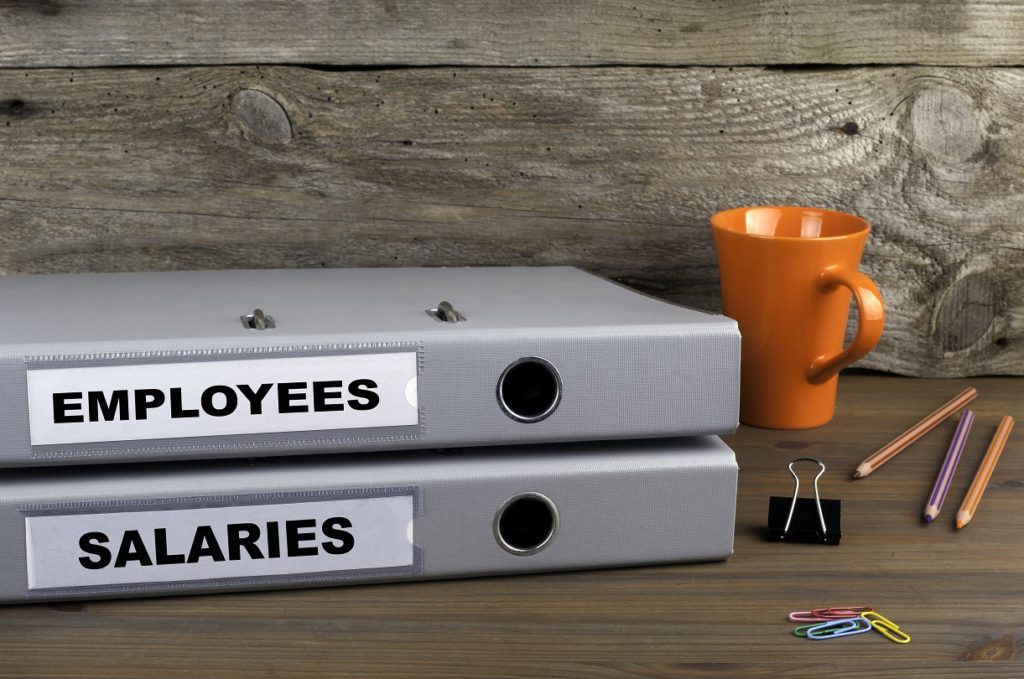This is the second article in a series of three looking at grading practice staff salaries. Part one can be found here
What’s a job worth?
Following on from the blog about clerical and administrative staff grading, this blog takes a closer look at the nursing team in a GP practice and the salaries that might be paid.
To begin with, I think it’s true to say that members of the nursing team would, in the main, expect a higher salary than their administrative and clerical colleagues, but not as much as the most junior GP in the practice. Most nurses will have trained and worked in the National Health Service and, in my view, will expect to be no worse off than their colleagues who work in community nursing, such as district nurses, health visitors and midwives. I believe it’s not good enough simply to look at what other GP practices pay their staff; but it does seem reasonable to look at the NHS Agenda for Change pay banding as a guide.
NHS PAY BANDS maximum salary 2019/20
Band 1 – £17,500 pa, £8.95 hourly
Band 2 – £19,000 pa, £9.12 hourly
Band 3 – £20,795 pa, £10.64 hourly
Band 4 – £23,700 pa, £12.12 hourly
Band 5 – £30,000 pa, £15.34 hourly
Band 6 – £37,000 pa, £18.92 hourly
Band 7 – £43,700 pa, £22.35 hourly
Band 8A – £50,800 pa, £25.98 hourly
Band 8B – £61,000 pa, £31.20 hourly
Band 8C – £72,600 pa, £37.13 hourly
Comparative key NHS nursing posts:
District Nurse – Band 6
Health Visitor – Band 6
School Nurse – Band 6
Community Midwife – Band 5/6
Community Psychiatric Nurse – Band 6/7
General practice – clinical posts
The range of staff employed continues to develop as special initiatives provide additional funding for new models of general practice. The grades shown have been taken from various NHS websites. Some of the main types of post/role are described below. The suggested pay bands are taken from NHS pay and career websites.
Phlebotomists (Band 2/3)
Phlebotomy based in the surgery can save patients attending a hospital and can speed up getting results, thereby providing a diagnosis, treatment and care for a patient more quickly. Such services are usually limited to the first part of the day as bloods taken need to be transferred to the nearest pathology laboratory. A phlebotomist works under supervision, is unregistered and is usually trained on the job.
Healthcare assistant (Band 2/3)
A healthcare assistant doesn’t require qualifications or a professional registration. As well as taking bloods and inserting needles into veins, an HCA might take pulses, blood pressure and change dressings. An HCA may also prepare and restock consulting and treatment rooms, and prepare instruments for minor surgery.
Treatment room nurse (Band 5)
As part of an economy drive, I recall a practice downgrading the role and salary of a practice nurse, restricting duties to those that could be undertaken in the treatment room. The nurse would not, for instance, take on any special interests, but might need to be at the beck and call of the GPs throughout the day. This hardly seemed fair.
Paramedic (Band 5)
Relatively new to general practice, paramedics are proving to be a useful addition to the nursing team. An NHS paramedic might expect a salary of between £24,000 to £37,000 per annum. A paramedic is highly qualified and trained to deal with emergencies of the type not often encountered on home visits in general practice. In my experience, home visits have been on the decline. Nevertheless, some practices have developed a role for a paramedic – but it would probably need to be a large practice.
Practice nurse (Band 6)
This role is broadly similar to the treatment room nurse, but this nurse probably takes on one or more special interests. The practice nurse might be the lead for diabetes or asthma or both. My concern for practices and their nurses has always been the extent to which they end up undertaking duties that, arguably, should be performed by district nurses. This would include dressings requiring changing after discharge from hospital. I recall a clever article drawing a line between day-case discharges and long-stay discharges. I don’t recall practices receiving extra funding for providing aftercare to patients discharged from hospital.
Nurse prescriber (Band 7)
A popular appointment in general practice is that of a nurse practitioner, who’s able to deal with minor illnesses and prescribe. The effectiveness of such a nurse depends on experience and training. A nurse prescriber will have completed an NMC Independent Nurse Prescribing Course.
(Advanced) Nurse practitioner (Band 6/7/8 and above)
The nurse practitioner may well substitute for a GP partner or salaried GP and deal with patients wanting to be seen on the same day. The advanced nurse practitioner is more highly qualified than a nurse prescriber – to degree level. With the shortage of GPs, it’s seen as another option to provide a fuller range of services for patients in general practice.
Practice pharmacist (Band 8A)
While dispensing practices located in rural areas my well be accustomed to employing a pharmacist and dispensing assistants, it’s unusual in non-rural general practice but becoming more common. This type of post has been funded by Clinical Commissioning Groups.
Summary
To summarise, in my view, there needs to be a clear hierarchy of posts and pay bands within a practice nursing team. There needs to be a system of supervision and accountability in place that comprehends and respects the role of each team member. My feeling is that grades or salary bands should be open and transparent so there’s little or no doubt about the line of responsibility.





August 18, 2020 at 1:33 pm
Paramedics are Band 6 not band 5. Paramedic Independent prescribers should expect band 7/8a
July 4, 2022 at 9:20 pm
2004: General Practice Nurse (H grade)
2022: General Practice Nurse (Band 6)
18 years more experience and many courses later, yet paid 3 grades lower!